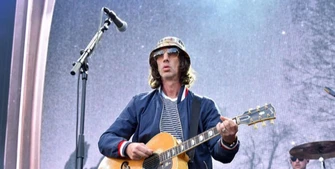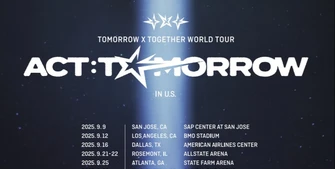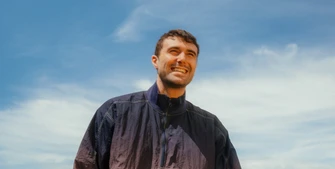Will Varley - Postcards From Ursa Minor Album Review
It's been almost two years since Will Varley's last album 'As The Crow Flies', and more than four from his stunning debut release, 'Advert Soundtracks'. In the ensuing years, it's safe to say that Will has seemingly mellowed with time. His 'anger', intolerance and frustration with certain aspects of life have not necessarily been diminished but dissipated. Common themes such as bankers, businessmen, politicians and political rhetoric still run through Will's music, but he's now more philosophical than ever.
'Postcards From Ursa Minor', Will's latest album, is not so much disgruntled with modern life as disappointed and dejected with it. He's come to accept his place on the planet and is no longer chasing the rainbow but he is in a perpetual search to find a meaning to other endless questions around our very existence: "this world that I'm livin' in makes no sense to me" ('The Man Who Fell To Earth'). Will is still a fantastic observer of the absurdities of life and has lost none of his humour, but his 'fight' is more considered and contemplative than ever on 'Postcards...': "maybe I got older and gave up on my dreams, or maybe I just realised that I just want to be free" ('Send My Love To The System').
Listening to Will's latest album reminded me of 'Good Will Hunting' (no pun intended), and in particular, the part where Robin Williams gives a great speech about Will's (Matt Damon's) thoughts on his painting and how he presumes to know all about him from the tiniest glimpse into his life. I don't presume to know about Will's life, nor would I wish to, but it does sound like he's more in touch with despair than filled with hope. Where once Will might have found a flash of light, it's more likely he's seen a darker, more disquieting side to life, with lyrics such as, "Do your best to lose track of time" ('Seize The Night'), "I made a life for you but you just rolled on through" ('This House'), "'cos we're drifting through space, we're losing our faith and we've never felt so alone" ('Is Anyone Out There'), and "Don't sing songs about politics boy 'cos it doesn't sell, now take these pieces of paper and go to hell" ('Concept Of Freedom').
Does this shift in emphasis matter? The answer is most definitely yes. An artist's creativity is on the whole more likely to be fuelled by torment and rejection than by contentment and comfort. More great songs are written about love and longing out of a relationship than in one; you need to feel the pain, angst, yearning and consumption with it to be able to impart its passion and emotional sensation effectively. Mawkish will lose to hurting and melancholy every time.
On the face of it, you'd probably conclude Will Varley is in a better place than ever; his third album release imminent, huge tour supporting Frank Turner about to get underway, increasingly raising his profile, more airplay etc. However, Will's songs on this album don't necessarily reflect this; they're resigned to the situation he's in rather than railing against them. Whatever it may be that has contributed to Will's state of mind whilst writing and recording 'Postcards...' is of little relevance to all but him, however it has clearly contributed to a subtle deviation and, more importantly, some truly suburb songs.
Will's ability to craft a song, tell a story, create a narrative, bring life to characters that you can believe in and care about has never been in question. On his latest album, he seems more determined than ever to emphasise that and underscore his unique gift as a genuinely outstanding singer-songwriter. 'The Man who Fell To Earth', about the tragic death of Jose Matata (not the Nicolas Roeg film), amongst other things is a sprawling piece of extremely well written prose that takes in birth, death, loss, elation and incredulity. It's a wonderfully woven tale where all the parts and players come together piece by piece like a Peter Bogdanovich film. You could easily pitch a film idea based on many of Will's songs. 'Outside Over There' is another fantastic example. The journey that Will takes you on is both beautiful and brutal in equal measure. The touching tender tale is uncomfortably compelling and delivered with such a tenderness and understanding that you can't help but be moved.
Elsewhere on 'Postcards From Ursa Minor' you might think Will had overdosed on Prof. Brian Cox documentaries with his contemplative, questioning and quizzical ponderances. From 'Is There Anyone Out There' through 'The Man Who Fell To Earth' to 'The Endlessness And The Space Between', Will is on a quest to find meaning in what it's all about. Thankfully for Will, there's still YouTube, cats, David Cameron and even Kanye West to add the odd moment of levity to some of the thirteen track collection that make up his latest album.
Where Will excels, and is still master of his art, remains in his inherent ability to write and impart a song, to draw you in, engage you wholeheartedly, capture a moment and bring it to vivid life. Will's writing continues to evolve and his gift for story-telling has never been better. On 'Outside Over There' and 'The Man Who Fell To Earth' Will exudes a quality and a character that are sorely under appreciated and on 'This House' he has managed to impart some of his most open, honest, touching, frank, heart on your sleeve moments in any of his songs to date. The embellishments made to some of his arrangements, the production and the added, inspired, extra instrumentation (especially the exquisitely delicate piano parts) have all undoubtedly contributed to the overall feel of this album but it is once again the quality of the song-writing that has lifted it far beyond the sum of its parts.
The best folk music is always stirring and holds a certain truth and honesty to it. The best poets are able to captivate your imagination and hold your attention through fabulous passages of brilliantly written verse and our best story tellers use language to such effect that they can evoke the most extreme of sensations that bring to bare the most violent emotional reactions. Will Varley manages to combine all of these elements into one formidable package on 'Postcards From Ursa Minor'. It's soulful, tender, touching, tormented and unquestionably, unflinchingly disillusioned with the world and that is, in part, what makes this album undoubtedly brilliant.
4/5
Andrew Lockwood














